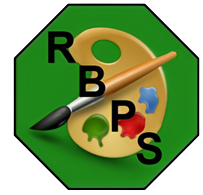Writing
At Richard Bonington, we believe in developing a greater love of writing across all age groups. On average, each unit of writing takes approximately 3 weeks. This time is split up into 3 separate stages of learning:
1. Imitation stage
The purpose of the imitation stage is to ensure that the children have understood and are immersed in the language, features and purpose of a particular text type. Reading, exploring and talking the text all takes place during this stage of the learning process. During this stage, the children should also have the opportunity to develop reading skills including decomposition and inference. Possible activities, which we use at this stage include:
- Communal story telling (story maps, props, puppets and actions)
- Communal story telling games (babble gabble, word tennis, racing dictations, treasure hunts)
- Drama related games (role play, tell a friend, thought tunneling, hot seating)
- Exploration of unfamiliar vocabulary (reading objectives)
2. Innovation stage
Drawing on our innovation stage, we guide pupils to use the knowledge and skills explored and practised in their own writing. Possible activities, which we use at this stage include:
- Additions, substitutions, alterations, recycling the plot, change of viewpoint (e.g. change the mood).
- Innovation stimulus questioning (e.g. What are the characters thinking? What are the characters saying? Would you rather …? What happens next? What happens just before …? What would you do if …? What if …?).
- Innovation games (metaphorical monsters, simile races, make a sentence (sentence combination games), improve a paragraph, playing with sentence structure).
3. Invention stage (awesome author task)
The ability to draw upon a full range of stories, language, experiences and skills to write for purpose and effect.
Please take a closer look at our 'talk for writing whole school overview' and 'writing progression' documents below for more information.
